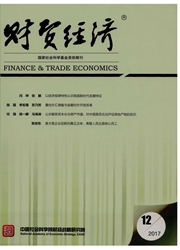

 中文摘要:
中文摘要:
借助2003年国务院实施的环保重点城市限期达标制度作为识别环境规制的准实验机会,本文采用双重差分方法评估并阐述了环境规制对企业生产率的影响和传导机制。研究发现:(1)相比较达标城市企业,该政策实施使得非达标城市企业平均全要素生产率(TFP)相对下降1.96%,成立时间短、规模小以及资本密度较高的企业,更易受到环境规制的不利影响,但这种不利影响会随时间而减弱,行业竞争有利于抑制不利影响;(2)该规制政策主要通过降低企业创新能力、增加中间成本和弱化企业融资约束来影响企业生产率,尽管重污染行业中企业的进入率在下降、退出率在上升,但这并没有带来产业层面重构和企业资源配置效率提升;(3)当企业所处地区的市场化程度越高、政府质量越高、绿色偏好越强,环境规制的不利效应越能够得到一定抑制。环境规制确实面临着较大的经济成本,通过市场化改革、政府质量提升以及绿色金融政策实施可以减弱其经济扭曲,伴随着环境成本(代价)趋高和显性化,通过降低污染排放来有效规避环境管制风险越来越成为提高企业竞争力的重要途径。
 英文摘要:
英文摘要:
The impact of environmental regulation on productivity has so far lacked empirical evidence from the microcosmic level of Chinese enterprises, especially the interpretation and testing of internal mechanisms. This article uses quasi-experimental opportunities of the environmental key city of environmental protection standard implemented by the State Council and the double differential method to evaluate and explain the influence and transmission mechanism of environmental regulation on enterprise productivity. The findings of this study are as follows. (1) The implementation of the policy makes the average total factor productivity (TFP) of non-compliance urban enterprises decrease by 1.96%, the establishment time is short, the scale is small and the capital density is higher, which is more susceptible to environmental regulation of the adverse effects, but these adverse effects will weaken with time, industry competition is conducive to curb the adverse effects. (2) This regulatory policy affects enterprise productivity by reducing the ability of innovation, increasing intermediate costs and weakening corporate finance constraints. Although the rate of entry in heavy polluting industries is declining and exit rates are rising, this does not lead to industry level reconstruction and enterprise resource allocation efficiency. (3) The adverse effects of environmental regulation can be suppressed when the degree of marketization is higher in the region, the better the quality of the government, the stronger the green preference. The environmental regulation of enterprises is indeed facing greater economic costs, through market-based reforms, government quality improvement and green financial policy implementation can weaken its economic distortions, along with environmental costs (prices) become higher and dominance, by reducing pollution Emission to effectively circumvent environmental control risks is increasingly becoming an important way to improve the competitiveness of enterprises.
 同期刊论文项目
同期刊论文项目
 同项目期刊论文
同项目期刊论文
 期刊信息
期刊信息
